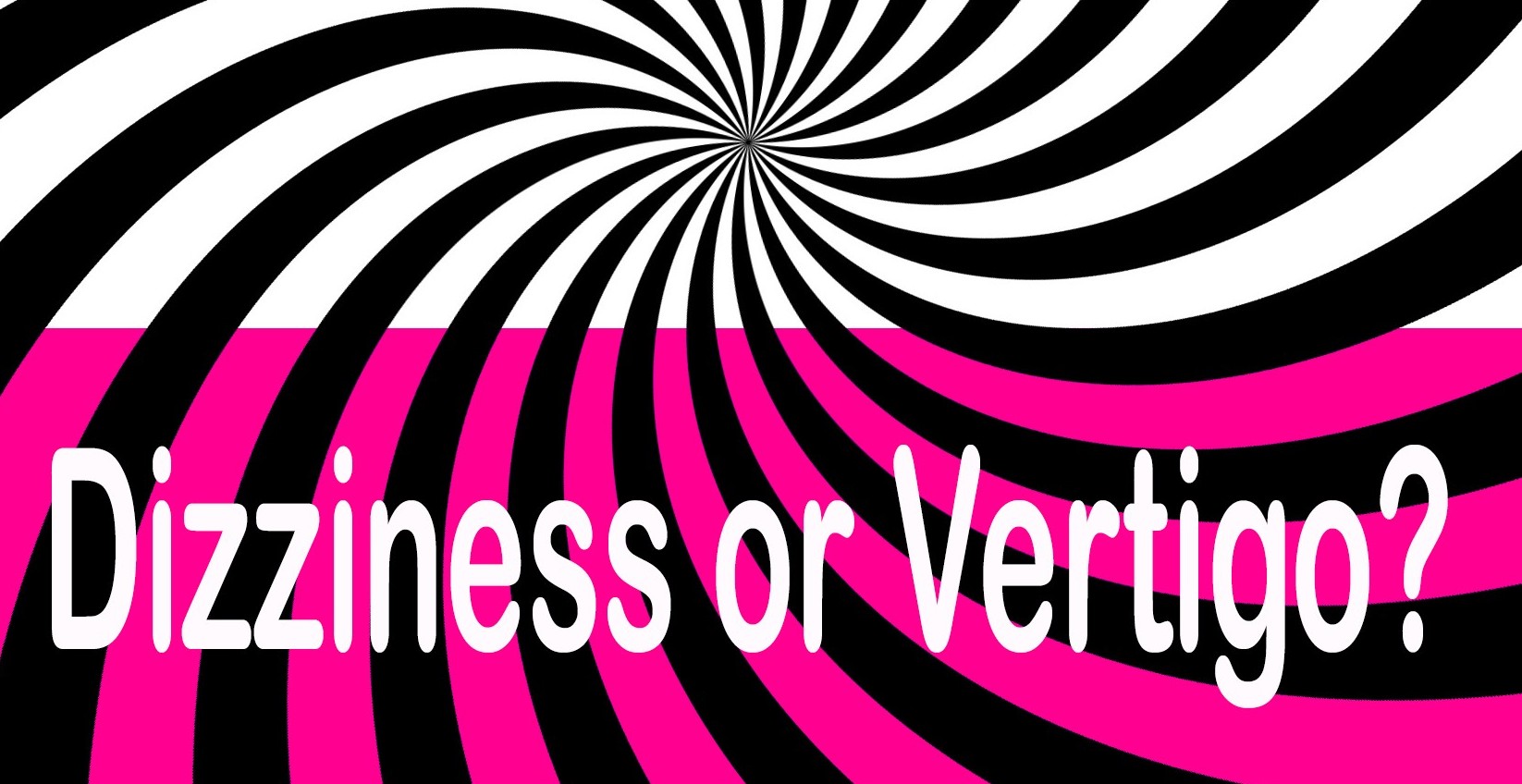Vertigo is not the same as dizziness
These words are not synonyms. It is an important fact for a person to understand, since they mean very different things and will therefor require very different treatment and examination. People will often use the word dizziness to describe any sensation that makes them feel as though the world is no longer clear. Some of the confusing feelings one might get and call dizziness are:
- Unsteadiness (a sense of imbalance, falling over or staggering when standing or walking). AKA disequilibrium.
- Light-headedness or sensation of being faint (presyncope).
- Uneasiness that can occur when one suffers from a cold or flu
- Dizzy feeling that can be caused by breathing too rapidly (hyperventilation), by fatigue or anxiety
Vertigo stands out from the rest as it is the only symptom where a person will get a feeling of spinning, moving or whirling when they are not actually moving.
When someone complains of dizziness it may or may not be vertigo.
When speaking to a medical professional, please be very clear of what you are describing to them in order that they help to determine the cause. The way you provide the information will assist in the physicians and physiotherapists approach and management of your complaints.
Examples of Dizziness
As described above, dizziness is a feeling of unsteadiness, light-headedness, uneasiness or fatigue. For example when feeling uneasy or unsteady after standing for a long period, such as when you stand at a soccer game or at a wedding. When you stand for a long period, blood can pool (due to gravity) in the legs which can deprive the brain of a level of oxygen and nutrients. Being that the brain is in control and is selfish, it can make a person fall horizontal so that gravity no longer pulls the blood to the legs. Dizziness can also occur when getting up fast from lying down. Because the blood is unable to reach the brain readily, your heart is unable to pump it there fast enough, your brain is again temporarily deprived of O2 and needs to equilibrate. This is called postural or orthostatic hypotension. These are just 2 examples to illustrate the difference.
Examples of Vertigo
With vertigo the world keeps moving even when a person is still. A person performing yoga with their head down will change positions and the world around them will keep on going. A person who puts their head back to have their hair washed at a salon will move their head back to neutral and feel like the world is spinning. A person will roll over in bed and may feel as though everything continues to move despite laying still. These symptoms are differentiated by the motion that continues once a person is sitting, lying or standing still.
A picture illustration:
A final way of determining your symptoms: Look at the picture below, forgive the little one for not enjoying the ride. If you are sitting or standing still and feel like you are still on this ride, then you are likely describing vertigo. If you feel like you just got off the ride and have that uneasiness many of us enjoyed as children, then you are likely describing dizziness.
At Leading Edge, we have a team of specially trained therapists who can help to determine the cause and often treat your vertigo. Please contact us and we will arrange an assessment to help you with your vertigo or click here to learn more about vertigo and our approach to its management. Life doesn’t have to be dizzy or spinny and remember that dizziness and vertigo are not the same thing!
In health, Grant Fedoruk
Disclaimer:
This information is not meant to replace the advice or treatment of a qualified physician or physiotherapist. It is meant for information only. Please seek an assessment and discuss your treatment options with your caregiver prior to making a decision about your treatment path.


















